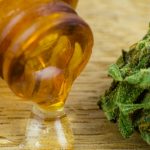Researchers have found evidence that the “entourage effect,” produced by the combination of various cannabinoids found naturally in the cannabis plant, can treat epilepsy better than isolated CBD.
The medical powers of cannabis are being more widely accepted every day, but nearly a century of marijuana prohibition has made it difficult for many government officials to break free from the past and support legal medical marijuana. In order to avoid the stigma associated with the plant, scientists have been working to isolate individual cannabinoids that can offer medical benefits without the high of THC.
This approach has worked to some extent, and several conservative states that otherwise oppose cannabis reform have been convinced to allow the use of non-psychoactive CBD medicines. This year, the Food and Drug Administration even approved the first federally-legal cannabis-derived medicine, the CBD-based epilepsy medication Epidiolex.
Hundreds of research studies now support the fact that CBD is an effective treatment for epilepsy and other ailments, but new studies are finding that cannabis as a whole can be even more effective than individual cannabinoids alone. Many manufacturers of full-plant cannabis extracts have argued that the combination of cannabinoids naturally present in the cannabis plant produce an “entourage effect” that is more medically beneficial for patients, but so far, research on the phenomenon has been limited.
A team of Brazilian researchers decided to take a closer look at the entourage effect, sometimes called the “ensemble effect,” and found that whole-plant cannabis extracts were indeed more effective at treating epilepsy than purified CBD alone. The researchers conducted a meta-analysis of studies exploring CBD and various forms of epilepsy conducted between 2013 and 2017. The resulting study, published in the Frontiers in Neurology journal last week, looked at the overall “safety and efficacy” of CBD treatments, but took a further step by investigating whether “there is enough evidence to assume any difference in efficacy between CBD-rich extracts compared to purified CBD products.”
The study reports that all forms of CBD were effective at reducing the frequency of seizures, even for treatment-resistant forms of epilepsy. Two-thirds of the patients across all 11 of the studies being examined had fewer seizures, and six of the studies reported that “over 80 percent of the patients” saw an improvement. These results were as expected, but the comparison of CBD-rich, whole-plant extracts to purified CBD extracts provides new evidence supporting the “entourage effect.”
Broken down by type of extract, the researchers discovered that 71% of patients taking the whole-plant extracts reported improvements, as compared to only 36% of patients using purified CBD extracts. “CBD-rich extracts seem to present a better therapeutic profile than purified CBD, at least in this population of patients with refractory epilepsy,” the researchers concluded. “The roots of this difference is likely due to synergistic effects of CBD with other phytocompounds (aka Entourage effect), but this remains to be confirmed in controlled clinical studies.”
An Australian study released earlier this summer supports the findings of the Brazilian study. Researchers from the University of Sydney tested samples of illegal cannabis extracts that families were using to treat their children’s epilepsy, and found that many of the most effective extracts were actually low in CBD, but high in THC and THCA. Scientists are also finding that there are many previously-unexplored cannabinoids, like THCV or CBN, that may also play an important role in the “entourage effect.”
(123)





Leave A Reply